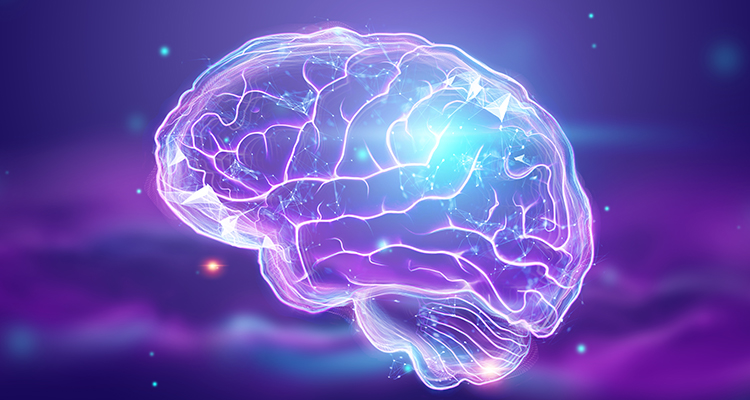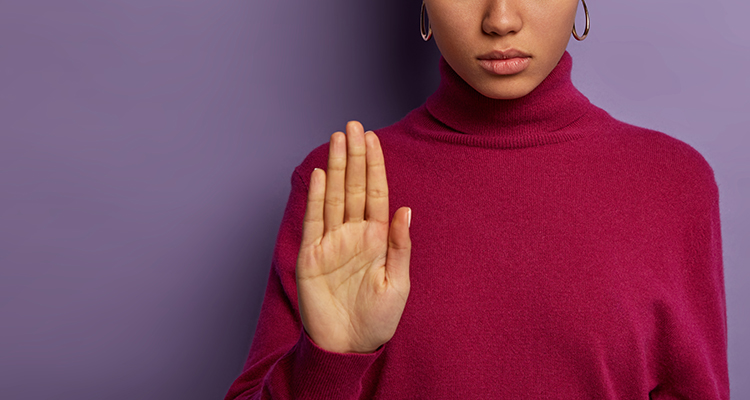“I Can’t Sleep?” Can I Use Amitriptyline for Insomnia?
Being unable to fall asleep peacefully and stay asleep throughout the night is not only annoying, but also extremely tiring. Chronic insomnia can lead to a host of health problems, such as headaches, muscle aches, stiff joints, moodiness, mental confusion or disorientation, daytime fatigue and sleepiness, agitation, anxiety, depression, increased viruses and infection, poor wound healing, high blood pressure, gastrointestinal distress (nausea, vomiting, constipation, diarrhea, and/or stomachaches), autoimmune conditions (type 2 diabetes, heart disease, etc.), obesity, etc.
Chronic sleeplessness can also wreak havoc on your self-esteem and self-confidence, relationships, work or school productivity, appetite and weight, and energy level. The good news is there are a variety of treatments, like online sleep programs, melatonin, sleep aids, and lifestyle changes, that can help you fall asleep and stay asleep throughout the night. If self-help tips are ineffective, a doctor may prescribe a prescription medication (like amitriptyline) to help you get sound sleep.
So, yes, you can take amitriptyline to help you sleep. However, before taking this medication for insomnia, it is important to thoroughly research it to ensure that it is the right sleep remedy for you.
Content
What is Amitriptyline?
Amitriptyline, a tricyclic antidepressant, is FDA-approved to treat depression. It is also used to treat a variety of “off-label” conditions, such as tension headaches/migraines, fibromyalgia, arthritis, back pain, chronic pain, peripheral neuropathy (damaged nerves), and insomnia. Ultimately, it is used to treat chronic conditions that affect your muscles or bones and/or cause pain. This medication has been around for a long time; however, it remains a popular choice for a variety of ailments, including insomnia, primarily because of its overall effectiveness and affordable cost (generic form).

How Does Amitriptyline Function in the Body?
Amitriptyline increases the amount of serotonin and norepinephrine (neurotransmitters/hormones) in your brain, which helps stabilize your mood, reduce your pain, ease your anxiety, and fall asleep. Amitriptyline’s exact role in sleep quality is currently unknown, however, it is designed to block histamine production, which can cause some people to become sleepy. Low serotonin levels can relax your body and help you fall fast to sleep. That is why amitriptyline is commonly prescribed to people, who have a hard time falling and staying asleep.

Will Amitriptyline Interact with My Other Medications?
Possibly…
Amitriptyline may interact with certain medications. Thus, it is important to provide your doctor with a thorough list of all of your prescription and over-the-counter medications, herbal supplements, and vitamins. Don’t forget to also update your pharmacists on your medications. Mixing certain medications with amitriptyline can lead to unpleasant, if not serious, side-effects. Amitriptyline may also reduce the effectiveness of your other medications, so research it if you are being treated for another condition.

Common medications (prescription, over-the-counter, herbal supplements, and vitamins) that may interact with amitriptyline include:
- Monoamine oxidase inhibitors (MAOIs) may lead to seizures and/or possibly death.
- Quinidine may trigger heart problems.
- Opioids may cause daytime sleepiness and increase your risk of serotonin syndrome – a condition that can cause high blood pressure and an elevated heart rate.
- Epinephrine (adrenaline) and norepinephrine (noadrenaline) may elevate your blood pressure and cause headaches, muscle aches, and chest pain.
Topiramate may increase the amount of amitriptyline in your body, increasing your risk of side-effects.
How Much Amitriptyline is Need to Improve Sleep Quality?
Various doses of amitriptyline are prescribed for sleep issues like insomnia. Amitriptyline comes in tablet form and the dosage largely depends on several factors, such as your age, your current medications (prescription, over-the-counter, herbal supplements, and vitamins), your health status, and any allergies or hypersensitivities to amitriptyline’s ingredients.

However, if you are a young or middle-aged adult insomniac, a doctor may prescribe between 40mg and 150mg of amitriptyline once at bedtime. But, if you are an older adult or a child, who is 12 and older, a doctor may prescribe 20mg of amitriptyline once a bedtime.
Note: If you have CYP2D6 or CYP2C19 genetic markers, a doctor may start you off with a lower dose of amitriptyline. Understand that people with these markers are at risk for more severe amitriptyline side-effects.
Should Certain People Avoid Amitriptyline?
It depends on what your doctor says…

Thus, it is important to inform your doctor AND pharmacist if you suffer from one or more of the following conditions:
- Cardiovascular disease (heart disease)
- Liver abnormalities or disease
- Kidney problems or disease
- Glaucoma – amitriptyline can increase the pressure in your eyes
- Diabetes – amitriptyline can increase your glucose (sugar) level, so your doctor may instruct you to check your glucose level more frequently while on the medication
- Epilepsy – amitriptyline can trigger seizures in some people
- Mental health conditions (depression, bipolar disorder, mania, anxiety, and/or schizophrenia)
- Pregnancy – it is unknown if amitriptyline affects an unborn child’s development or if it is passed to a baby through the mother’s breastmilk.
*Ask your doctor if it is safe for you to take amitriptyline for insomnia if you have one or more of the conditions listed above.
Are There Any Side-Effects Associated with Taking Amitriptyline for Sleep Issues Like Insomnia?
Yes, amitriptyline can cause side-effects.

In fact, amitriptyline can cause some pretty unpleasant and serious side-effects. So, before taking amitriptyline for sleep, talk to your doctor AND pharmacist about any medicine-related allergies. Also, share with your doctor any suicidal thoughts you’ve had in the past.
Listed below are some amitriptyline side-effects you should be aware of:
Common Side-Effects
It is common to experience minor side-effects when first starting amitriptyline, however, these “effects” should disappear after a few days. If the side-effects continue or worsen, contact your doctor for further instructions. Do not, however, stop taking the medicine without first notifying your doctor.
- Dry “cotton” mouth
- Headaches/migraines
- Sudden weight gain
- Mouth pain
- Unusual taste
- Black tongue
- Constipation or diarrhea
- Nausea, upset stomach, and/or vomiting
- Reduced urination
- Itchiness and/or rashes
- Swollen breasts in men and women
- A sharp decline in blood pressure when going from sitting to standing
- Sleepiness, drowsiness, and/or dizziness
- Vision problems (blurry vision)
- Tremors (shakiness)
- Reduced sex drive or libido
- Impotence, erectile dysfunction, premature ejaculation, or an inability to have an orgasm
Serious Side-Effects
Although rare, it is possible to experience serious side-effects while taking amitriptyline for sleep. As mentioned above, if your side-effects worsen or become life-threatening, contact your doctor and/or call 911.
- Abnormal, rapid, pounding, or irregular heartbeats
- Chest flutters
- Seizures or convulsions
- Confusion or hallucinations
- Breathing difficulties, shortness of breath, and/or chest pain
- Light-headedness
- Fevers
- Nausea
- Mouth sores
- Blood clots
- Excessive sweating
- Chills
- Sore throat
- Uncharacteristic behavior
- Unexplained bruising or bleeding
- Painful or difficult urination
- Severe constipation
- Partial paralysis or muscle weakness on one side of your body
- Slurred speech
Has the FDA Approved Amitriptyline for Insomnia?
No, amitriptyline has not been approved by the FDA for insomnia.

The Food and Drug Administration (FDA) has only approved amitriptyline for the treatment of depression. However, it is common for doctors to also prescribe this medication for insomnia and “sleeplessness.” When a medication has not been approved for a specific condition, but is still prescribed for it, it is referred to as “off-label” use.
“Off-label” uses may be prescribed for a variety of reasons, such as:
- Age – If the FDA has approved a medication for a certain age group and you fall outside of that age group, your doctor may still prescribe the medication as an “off-label” use.
- Purpose – If the FDA has approved a medication for a specific condition(s), but your doctor thinks it could also benefit your non-approved condition, your doctor may still prescribe it for you as an “off-label” use.
- Dosage – If the FDA has approved a medication at a certain dosage, but your doctor thinks a higher or lower dosage would be more beneficial for you, he or she can still prescribe it for you as an “off-label” use.
Is Amitriptyline Dangerous?
*Amitriptyline can be dangerous for some people, so use caution when taking it for sleep.

The FDA has issued a “black box warning” for amitriptyline. What does that mean? It means that this particular medication is linked to serious and possibly life-threatening side-effects and complications. It is important to pay close attention to this warning before deciding whether or not to take it for insomnia or “sleeplessness.”
Note: The FDA has found that amitriptyline can cause suicidal thoughts in some people, such as children, teens, and young adults. So, if you start to behave uncharacteristically, experience a noticeable change in mood or thoughts, and/or begin to ruminate about suicide, contact your doctor asap and/or call 911.
Should I Take Amitriptyline for Insomnia?
If you feel comfortable doing so, it’s worth a try! However, use caution when using this medication for “off-label” conditions like insomnia.

Amitriptyline has been in existence for decades and it has been “off-label” prescribed for “sleeplessness” and insomnia for decades – primarily because it’s an affordable sleep remedy. Antidepressants (like amitriptyline) are often prescribed to people, who suffer from depression and insomnia. Why? Because people, who suffer from depression, also tend to experience sleep disturbances.
As mentioned above, amitriptyline is linked to side-effects, some of which are severe. It can also interact with your current medications, so it is important to provide your doctor AND pharmacist with a full list of your medications and allergies.
But, if you have been struggling with “sleeplessness” or insomnia for a long time and are in desperate need of some peaceful zzz, amitriptyline may be the inexpensive, non-addictive sleep aid that finally helps you fall and stay asleep all night long!
What If I’m Not Ready for Sleeping Pills – Are There Natural Sleep Aids I Can Try?
Yes! There are natural treatments for insomnia you can try before resorting to amitriptyline to help you sleep.

Listed below are self-help tips you can try when you just can’t sleep:
- MelatoninMelatonin is a natural hormone that controls your circadian rhythm (sleep-wake cycles). When the sun goes down and nighttime approaches, your body produces serotonin, which turns into melatonin, causing you to become sleepy. When you don’t produce enough serotonin to trigger the release of melatonin, it is harder to fall asleep at night.
Melatonin may improve your sleep quality, if you suffer from an affective disorder (i.e., seasonal affective disorder), aging, a mood disorder (i.e., depression), delayed sleep-wake phase disorder, or jet lag. Researchers have also found that melatonin improves sleep quality and daytime focus in older insomniacs (over the age of 54).
- Yoga According to a 2017 study, yoga may ease insomnia symptoms. In fact, researchers suggest that yoga may help you fall peacefully asleep and stay as asleep until the next morning. Yoga is a meditative practice that helps your body and mind relax. It involves deep breathing, gentle stretches, a peaceful existence, a spiritual connection, and a clear mind. The goal of yoga is to help you de-stress, so you feel “calm enough” and “balanced enough” to fall peacefully asleep.
- HypnosisIf you are having a hard time getting quality sleep, you may want to try hypnosis. The goal of hypnosis is to help you become more focused and self-aware, so you can enter a deeper, and more relaxed subconsciousness. The exact process of how hypnosis helps you snooze at night is unknown. However, the general consensus is that hypnosis causes biological (physical) changes in your body like a lower heart rate and blood pressure and reduced brain activity – all of which can trigger sleepiness and relaxation.
- Soft MusicSoft music (i.e., classical, jazz, easy listening, orchestral, instrumental, R&B, etc.) may help you get some much-needed zzz! According to a 2011 study, music can help you fall asleep more quickly, reduce nighttime wake-ups, and prolong your sleep time.
- Movement A lack of movement (exercise) can cause “sleeplessness.” In fact, studies indicate that a sedentary lifestyle can make getting a good night’s sleep difficult. Why? Well, when you don’t get enough exercise, your muscles atrophy (weaken), leading to pain and insomnia. Movement (exercise) helps you sleep better at night, however, excessive movement too close to your bedtime can have the opposite effect. In other words, too much exercise can stimulate you, triggering or worsening insomnia.
- “Sleepy Foods”What are “sleepy foods?” “Sleepy foods” are foods rich in tryptophan, an amino acid that converts into melatonin in your body. These foods include: milk, nuts, and seeds, fish, turkey, chicken, etc. So, if you have been having a hard time falling asleep, opt for a turkey sandwich, grilled or baked salmon for dinner. Then, grab a handful of nuts or sunflower or pumpkin seeds, and a warm glass of milk before bed.
Note: L-tryptophan supplements have been linked to eosinophilia-myalgia syndrome, so they are generally not recommended.
- Sleep ProgramsSleep programs, like Somnus Therapy, not only help you fall asleep faster and stay asleep longer, they also improve the quality of your sleep, so you feel rested once you awaken. Somnus Therapy is an online sleep restoration program that offers cognitive behavioral therapy for insomnia (CBT-i) and provides you with the tools, knowledge, tips, and techniques you need to fall asleep quickly and stay asleep longer. The best part? You can do it all from the comfort of your couch or bed!
Summary
Amitriptyline is primarily used to treat depression, however, it is also used to treat other “off-label” conditions, such as chronic pain, ADHD, insomnia, and “sleeplessness.” It is important to understand that “off-label” uses (like amitriptyline for insomnia) have not been approved by FDA, but are still prescribed for a variety of medical conditions.

Amitriptyline is considered generally safe and effective for most insomniacs. However, it has also been issued a “black box warning” by the FDA. Amitriptyline can trigger suicidal ideation in children, adolescents, and the elderly. Still, studies indicate that amitriptyline can be especially beneficial for people, who have a hard time staying asleep, and those, who awaken too early in the morning. Because amitriptyline is non-addictive, safe for long-term use, and affordable, it is a viable sleep remedy for insomniacs in dire need of a good night’s sleep.




















